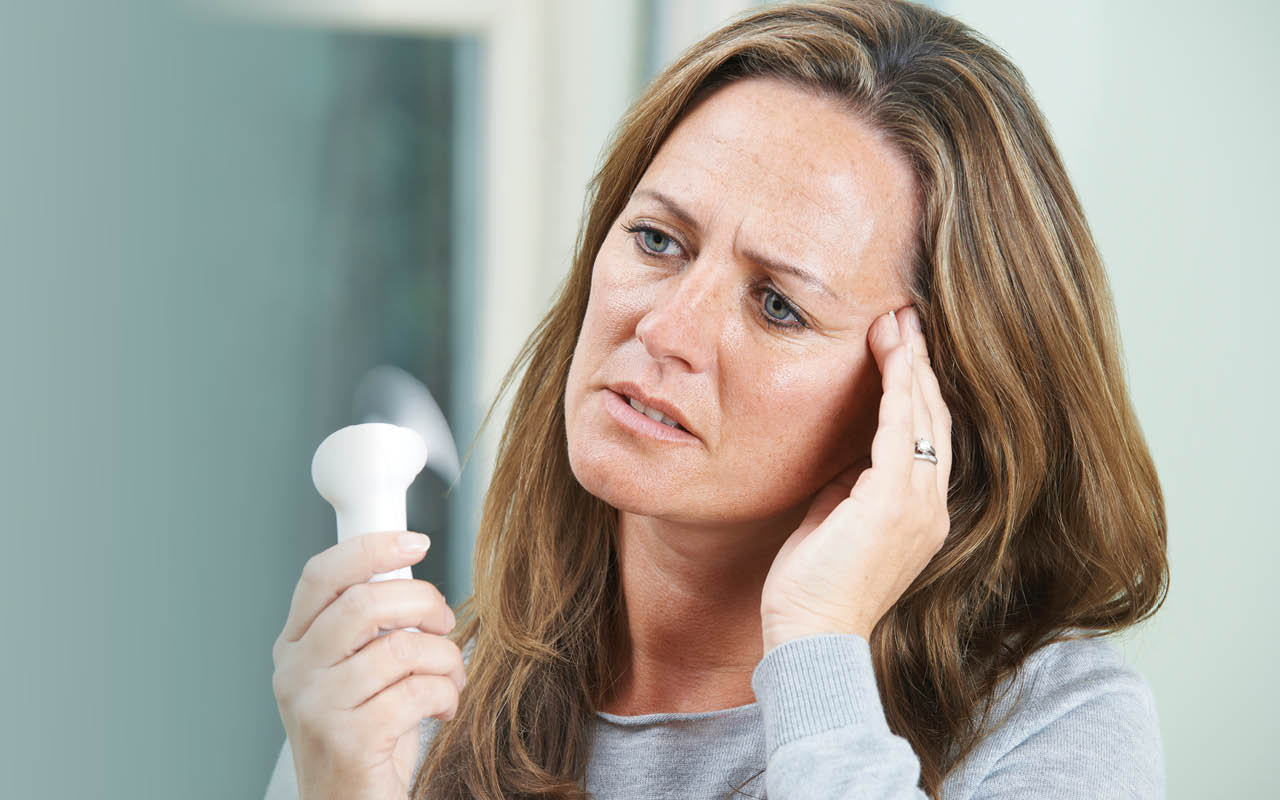 “The average age of reaching menopause, which is when a woman has not had a menstrual cycle for a full year, is 51. Leading up to that point — usually starting in the mid-40s — is what we call perimenopause, which is when your hormone levels are changing and you experience the symptoms we talk about when people refer to ‘going through menopause,’” says Shyama Mathews, MD, a board certified gynecologist and minimally invasive gynecologic surgeon on the Medical Staff of Penn Medicine Princeton Health.
“The average age of reaching menopause, which is when a woman has not had a menstrual cycle for a full year, is 51. Leading up to that point — usually starting in the mid-40s — is what we call perimenopause, which is when your hormone levels are changing and you experience the symptoms we talk about when people refer to ‘going through menopause,’” says Shyama Mathews, MD, a board certified gynecologist and minimally invasive gynecologic surgeon on the Medical Staff of Penn Medicine Princeton Health.
Symptoms of perimenopause can include:
- hot flashes
- night sweats
- mood swings
- weight gain
- sleep issues
- vaginal changes that can
- result in painful intercourse
- frequent urinary tract infections, and incontinence issues
Hormonal changes also increase the likelihood of women developing osteoporosis, cardiovascular disease, weight-related conditions such as diabetes, and anxiety and depression.
A Range of Treatments are Possible
“Some women find they have little or no symptoms, while others experience the total rollercoaster ride, and it can be challenging,” says Dr. Mathews. “Hormonal changes can last five to seven years, so if you are experiencing symptoms that are impacting your quality of life, your relationship with family and friends, your work life, you should see your doctor for a diagnosis
and treatment.”
For some women, certain lifestyle changes can ease or eliminate symptoms, for example, exercise; meditation; yoga; dietary changes such as eliminating caffeine and alcohol, which can trigger hot flashes; and even acupuncture. “Once diagnosed, these are things you can begin with to see if they work,” says Dr. Mathews. “If symptoms persist, your doctor can work with you on other options.”
Hormone therapies can be temporarily prescribed and used safely to smooth out hormonal fluctuations so they are more manageable. To help with vaginal issues, topical estrogen creams can help. Hot flashes, night sweats, and mood changes have been effectively treated with non-hormonal therapies that have typically been used to treat anxiety and depression.

